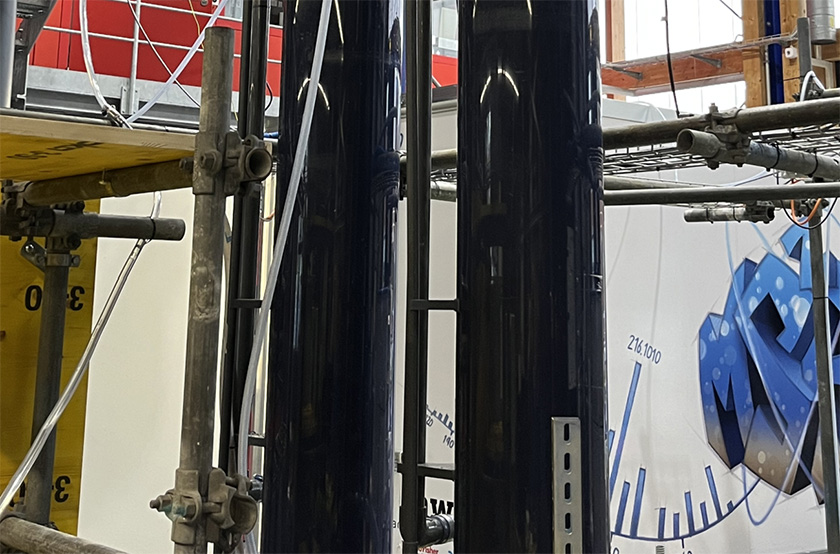Department Environmental Chemistry
Granular activated carbon (GAC) filtration to abate micropollutants

Treatment with powdered activated carbon (PAC) and ozonation are established methods for advanced wastewater treatment plants to comply with the new Swiss water protection act to remove micropollutants. Later, granular activated carbon (GAC) filtration was tested and found to be economically competitive under certain conditions. A minimal empty bed contact time (EBCT) of 20 minutes is crucial to achieve a good performance. Moreover, DOC, industrial contribution to wastewater, and rain events have a great impact on the performance and lifetime of GAC filters. Pre-treatment with low ozone doses allows to at least double the life-time of a GAC filter, and also a PAC pre-treatment was successfully tested. To understand better the dynamics of micropollutant concentration and abatement in GAC filters during rain events, we performed online-LC-HRMS (high-resolution mass spectrometry) measurements of micropollutants with the MS2field instrument, which allows measurements at high temporal resolution.
We are accompanying and supporting the implementation of the full-scale GAC filtration at WWTP Glarnerland (commissioned mid 2023), where additionally a pre-treatment with dosing PAC into the biological treatment is used (AK24Water project). In another project, we aim to better understand the biodegradation processes which complement the sorptive processes in micropolluntant removal during GAC filtration (Ambizione project of Sema Karakurt-Fischer).
